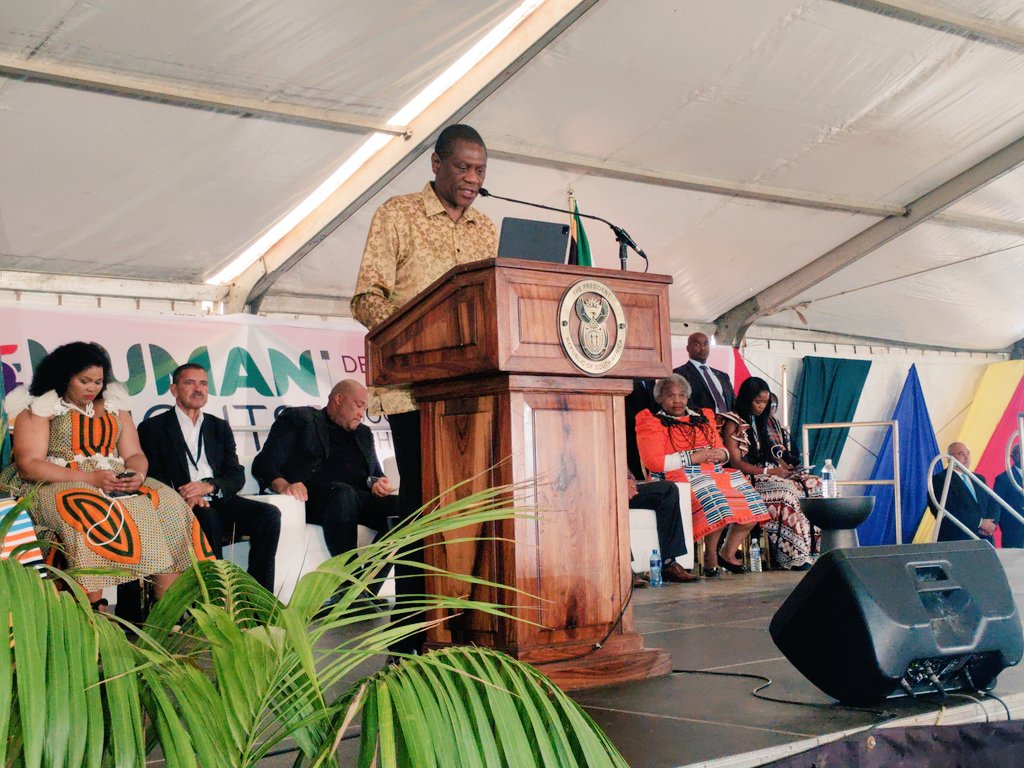Deputy President Paul Mashatile has called on all South Africans to take an active role in shaping the country’s future by exercising their democratic rights. Speaking at the Human Rights Day address in Kariega, Eastern Cape, on Friday, Mashatile emphasized the importance of citizen participation in strengthening democracy and promoting social justice.
The event, themed “Deepening a Culture of Social Justice and Human Rights,” highlighted the need for all sectors of society—government, civil society, and businesspeople—to work together in ensuring that human rights are protected and upheld.
The Call for Active Participation
During his address, Mashatile stressed that human rights are not just the responsibility of the government but of every South African.
“The task before us requires a unified effort, a partnership between government, civil society, and also businesspeople. We want to make sure that businesspeople are also there at that national dialogue,” he said.
He urged citizens to recognize their power in shaping the future of South Africa, particularly as the country prepares for the 2024 general elections. He emphasized that voting is one of the most powerful tools in a democracy and encouraged people to use their voices to elect leaders who prioritize social justice and equality.
Reflecting on South Africa’s Human Rights Journey
Mashatile’s speech came at a time when many South Africans are reflecting on the nation’s progress since the first democratic elections in 1994.
Human Rights Day in South Africa is historically significant, commemorating the Sharpeville Massacre of March 21, 1960, where 69 unarmed protestors were killed by apartheid police during a peaceful demonstration against pass laws.
Mashatile acknowledged the country’s progress in establishing a constitutional democracy, but also pointed out that many challenges remain, particularly in addressing economic inequality, access to education, healthcare, and social justice.
Addressing Social Justice and Economic Challenges
One of the key issues raised by Mashatile was the economic divide that still exists in South Africa.
Despite being one of the most economically developed nations in Africa, South Africa continues to struggle with high unemployment rates, poverty, and a lack of economic opportunities for marginalized communities.
Mashatile highlighted the role of business leaders in advancing human rights, stating that they should be active participants in national conversations about creating a fair and inclusive economy.
“It is crucial that the business sector also plays a role in fostering social justice. Economic development must be inclusive so that all citizens benefit,” he said.
Government’s Commitment to Human Rights
Mashatile reassured South Africans that the government remains committed to strengthening human rights policies and social justice programs.
He acknowledged recent concerns over issues such as gender-based violence, corruption, and unequal access to basic services, but affirmed that the government was taking steps to address these issues through policy reforms and law enforcement measures.
He also emphasized the importance of education in promoting human rights, stating that a well-informed society is better equipped to stand up against injustice.
The Road Ahead for South Africa
Mashatile concluded his speech by calling on South Africans to remain engaged, hold leaders accountable, and actively participate in democracy.
“South Africa’s future depends on all of us working together. Let us continue to build a society that reflects the values of our Constitution—equality, dignity, and justice for all,” he said.
As the country prepares for upcoming elections and continues to navigate economic and social challenges, Mashatile’s message serves as a reminder that each citizen plays a crucial role in shaping South Africa’s future.

